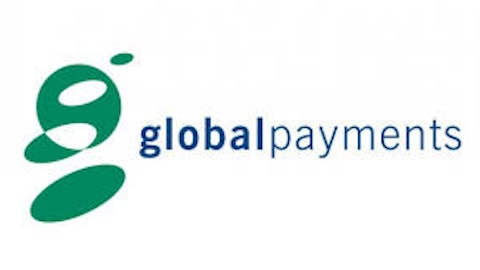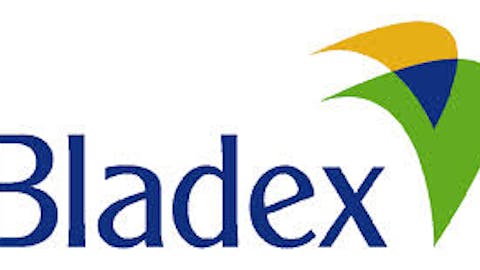Listed in April 2013, Evertec Inc (NYSE:EVTC) is a full-service transaction processing provider in Latin America and the Caribbean. It is also the operator of one of the leading ATM and personal identification number (PIN) debit networks in Latin America.

If you find yourself making payments using debit cards, credit cards or online payment systems more often in the past few years, you are not alone. Be it a case of seeking convenience or the inability to resist the carrots dangled by banks, the fact is that cash and checks are increasingly replaced by electronic payments. The transaction value of cards in the U.S. is forecasted to double from $56 billion in 2006 to $115 billion in 2016, based on a study of consumer payment systems in the U.S. by Nilson.
Given that the proportion of the unbanked in Latin America is much greater than that of developed economies such as the U.S. and Europe, the growth potential for electronic payments through increasing market penetration is also relatively larger. According to the January Issue of The Nilson Report, Latin America will be the third fastest growing payments market globally. Purchase transactions are expected to grow 97% from 2011 to 2016, compared with a five year growth rate of 44% and 51% for the U.S. and Europe respectively.
Puerto Rico is the perfect launch pad for expansion into Latin America, and Evertec Inc (NYSE:EVTC)’s market leadership in Puerto Rico makes it well-positioned to enter new markets in Latin America. For example, Evertec Inc (NYSE:EVTC)’s ATM and PIN debit network, the ATH network, is the largest network in Puerto Rico, outrivaling big names like American Express, MasterCard and Visa. While Evertec Inc (NYSE:EVTC) already has a presence in 19 countries with more than 180 financial institution customers in Latin America, countries such as Peru, Bolivia, Paraguay and Argentina are potential targets for future expansion.
Attractive business model
Being the only player in Latin America to provide the full range of merchant acquisition, payment network, and other business solutions to its customers, Evertec Inc (NYSE:EVTC)’s business model boasts of several attractive financial characteristics.
Firstly, 87% of Evertec Inc (NYSE:EVTC)’s revenues are recurring in nature, with the remaining 13% comprising of project based business solutions such as an one-off IT consulting project.
Secondly, EVERTEC has high customer retention rates, with customers accounting for about 99% of its 2011 revenues remaining as customers in 2012. This is further supported by long term contracts as long as five years in tenure, with automatic renewals built in.
Last but not least, this is a scale-efficient business with low maintenance capital expenditure requirements. As a result, EVERTEC improved its adjusted EBITDA margin from 43% in 2010 to 50% in 2012 on the back of operating leverage; and grew free cash flow by a three year annual growth rate of 17% to $142 million in 2012.
Future outlook
EVERTEC’s revenues and adjusted EBITDA grew by 6% and 8% year-on-year to $87.3 million and $41.8 million respectively for the first quarter of 2013. It has multiple growth drivers going forward including cross-selling its services to existing customers, expansion into new countries within Latin America, and the introduction of new services such as its mobile Point-Of-Sale service EverPay.
Peer comparison
EVERTEC’s peers include Vantiv Inc (NYSE:VNTV) and Bladex.
Formerly a business unit of Fifth Third Bank until June 2009 and listed in March 2012, Vantiv Inc (NYSE:VNTV) is one of the largest PIN debit and merchant acquirers in the U.S. Similar to EVERTEC, Vantiv derives recurring revenues from clients on long term contracts, typically between three and five years. In addition, its net revenues grew by a rate of 6% annually from 2007 to 2010, despite a fall in housing starts and consumer credit during the period.
In the first quarter, Vantiv increased its revenues and EBITDA margin by 15% and 160 basis points year-on-year respectively. The growth in revenue was a result of an increase in market share, while the margin enhancement was driven by operating leverage. The greatest threat facing Vantiv is potential disintermediation from micro-merchant aggregators.
Bladex, a Latin American financial institution providing short-term financing for international trade, is also a proxy for Latin American growth, like EVERTEC. In addition, Bladex is relatively less risky compared with its financial institution peers, given its Tier-1 capital ratio of 16.6% and a BBB+ rating from Fitch.
For the first quarter, Bladex increased its client base and commercial loan portfolio by 22% and 14% respectively. It also maintained its quarterly dividend of $0.30 per share. While the ownership of a 16% interest in Bladex by several central banks in Latin America is a source of stability, the certain super-majority voting rights they enjoy could be a cause for concern.
Conclusion
EVERTEC is a beneficiary of the secular trend of more consumers using cards in lieu of cash and checks for payments. Attributes such as a high proportion of recurring revenues, high customer retention rates and significant operating leverage makes EVERTEC even more attractive. However, EVERTEC is overvalued at 23.6 times trailing P/E and 16.2 times trailing EV/EBITDA. Moreover, it is highly leveraged with a gearing of 569%. I will advise investors to consider the stock at a lower valuation multiple, and after it has completed its deleveraging efforts.
The article This Stock is a Beneficiary of Changing Payment Habits originally appeared on Fool.com and is written by Mark Lin.
Mark Lin has no position in any stocks mentioned. The Motley Fool recommends Bladex. The Motley Fool owns shares of Bladex. Mark is a member of The Motley Fool Blog Network — entries represent the personal opinion of the blogger and are not formally edited.
Copyright © 1995 – 2013 The Motley Fool, LLC. All rights reserved. The Motley Fool has a disclosure policy.




